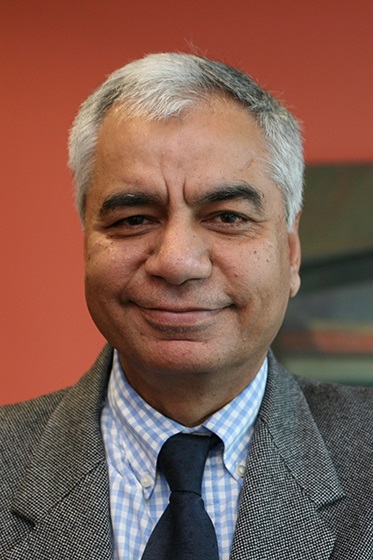
Professor Dinesh Bhugra, CBE
- President, Royal College of Psychiatrists (2008-2011)
- President, World Psychiatric Association (2014-2017)
- President, British Medical Association (2018-2019)
- Professor Emeritus of Mental Health and Cultural Diversity, Kings College London
As President of the WPA, he led on and crafted 30 Position Statements on various topics, including characteristics of a good psychiatrist some of which have strongly influenced policy in governments around the world.
He established Presidential task Forces on Child abuse and Neglect, Inter-personal Violence, Prisoner mental Health care, Migrant health care, LGBT populations’ mental health care and those of people with intellectual disabilities.
He created programmes for mental health promotion and appointed Good Will Ambassadors from Bollywood and Hollywood along with patients and religious leaders. He established 6 WPA Collaborating centres in different parts of the world to share research, policy and training.
Following a survey of discrimination against people with mental illness in 193 countries, he developed Bill of Rights for Individuals with mental Illness signed by 60 organisations which was followed by Bills of Rights for Children and young people and for those with intellectual disabilities.
As part of the First Global Agenda Council of the World Economic Forum and in this role helped produce a document on mental health in the workplace. As President of the BMA he led on medicine’s social contract, launch of equity campaign and survey of burnout among doctors and medical students.
In 2013, he chaired the enquiry into racism in Cardiff Medical school and all the recommendations were accepted by the University and follow-up in 2021. In 2016, he chaired an enquiry into the patient care and abuse in Hong Kong on behalf of the Government of Hong Kong.
He has authored/co-authored over 500 scientific papers, chapters, editorials and 40 books. Several of his books have won awards and three have been translated into Mandarin and Japanese.
His Oxford Textbook for Public Mental Health won Book of the Year award in 2019. In the same awards Practical Cultural Psychiatry was highly recommended. He is the Editor of the International Journal of Social Psychiatry and International Review of Psychiatry. His latest co-edited volume Oxford Textbook of Psychiatry was published by OUP in 2022.
Since its shift from alienism to psychiatry as a medical discipline biopsychosocial models of aetiology and management have been developed and utilised. The pendulum often swings between biological and social psychiatry. The truth as always is somewhere between the two where medical factors and vulnerabilities affect social functioning and social determinants influence health including mental health.
There is increasingly clear evidence that social factors through epigenetics influence physical structures and functioning of the brain. Furthermore, a vast majority of patients can live with their symptoms provided they have a degree of social functioning which gives them company, money to manage, employment, housing etc.
In psychiatric clinical settings, understanding and adding anthropological and spiritual factors in exploring and understanding causation and thereafter using these in managing individual distress can be helpful especially as explanatory models and models of help-seeking are likely to vary across cultures.
Social determinants undoubtedly are affected by global geopolitical determinants as has been seen following natural disasters like floods, earthquakes, volcanic eruptions but also manmade disasters such as war and famine.
The clinicians must have a rounded models of aetiology and management. It is crucial that clinicians are also advocates for the betterment of social needs of their patients.


